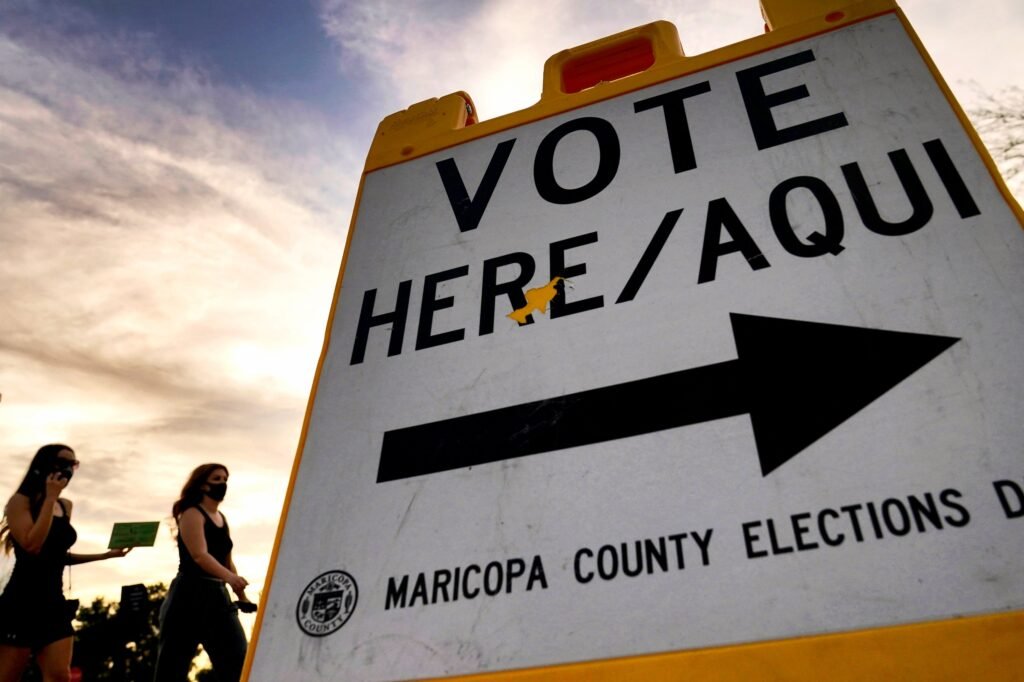Cochise County Supervisor’s Election Interference Case
Phoenix – A Cochise County supervisor in Arizona, Tom Crosby, who has been accused of conspiring to disrupt the 2022 general election, reiterated in court on Friday that his actions regarding the delay of election results did not breach state law.
This argument, however, seems to overlook the main issue at hand: the accusations against Crosby pertain to failing to meet the county-level election deadlines rather than those at the state level.
The indictment charges Crosby, along with fellow supervisor Peggy Judd, with conspiracy and interference with election officials. Judd pleaded guilty in October, while Crosby continues to claim his innocence.
As part of the Republican majority on the Board of Supervisors, Crosby and Judd had voted to extend the deadline for the county’s election results past November 28, 2022. Crosby maintains he acted to ensure voters had a chance to voice any concerns about election integrity.
According to Crosby, the Secretary of State was able to certify the election results by the legal deadline, indicating that his intention was not to obstruct the election process.
“Crosby admitted to all the details of the indictment, but that doesn’t equate to proving a conspiracy,” asserted Brian Gifford, Crosby’s defense attorney, in the courtroom on Friday morning.
Gifford contended that merely delaying the results doesn’t necessarily interfere with the overall election process. He criticized the legal framework that the prosecution is relying upon. However, Judge Jeffrey Fish has already rejected Crosby’s plea to dismiss the charges.
The controversy surrounding the election canvas dates back to the period before the November 2022 election, driven by unfounded allegations of widespread voter fraud linked to claims from former President Donald Trump about the 2020 election.
In an effort to placate those concerned, Crosby tried to arrange a meeting with the Secretary of State’s office. While waiting for a response, he voted to postpone the canvas.
When Democratic supervisor Anne English pressed for a vote, the state had not yet agreed to the meeting by the November 28 deadline.
Crosby argued that he had no choice but to delay, as the agenda items for the votes weren’t clearly labeled for the canvas. He believed that proceeding with the vote would violate the Open Meeting Act.
The court has already indicated that Crosby’s actions did not qualify for any exceptions regarding the requirement to finalize the canvas by the end of November.
Still, Gifford pointed out that the existence of many exceptions complicates proving intent to violate the law.
State prosecutor Todd Lawson welcomed the opportunity for Gifford to cross-examine witnesses about Crosby’s intentions, stating, “They need to put forth these arguments in court.”
Lawson emphasized that Crosby’s claim about his intention to interfere isn’t a pivotal point, given the election was successful in the end.
“Bank robbers might escape with cash,” Lawson said. “But they intend to rob the bank regardless of the aftermath.”
Gifford maintained that Crosby’s statements made during a public meeting should be protected under legislative privilege and immunity, thus should not be used against him as evidence of intent to interfere. He further mentioned there’s no evidence beyond the public meeting for the prosecution to utilize. However, Judge Fish noted that not all of Crosby’s actions fell under that privilege.
Both Crosby and Judd are referenced in the indictment, but it does not clarify that they conspired together. Instead, it merely claims that Crosby conspired “with one or more persons.” Gifford argued that this lacks specificity.
Lawson asserted that the prosecution had done its due diligence, accusing Gifford of ignoring the reality of the situation.
If Judge Fish denies the motion to dismiss, a trial date will be set for later this year.







